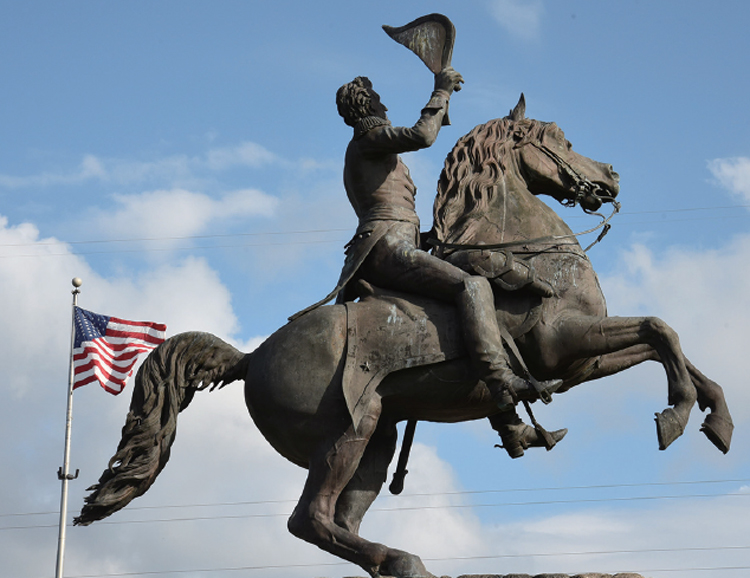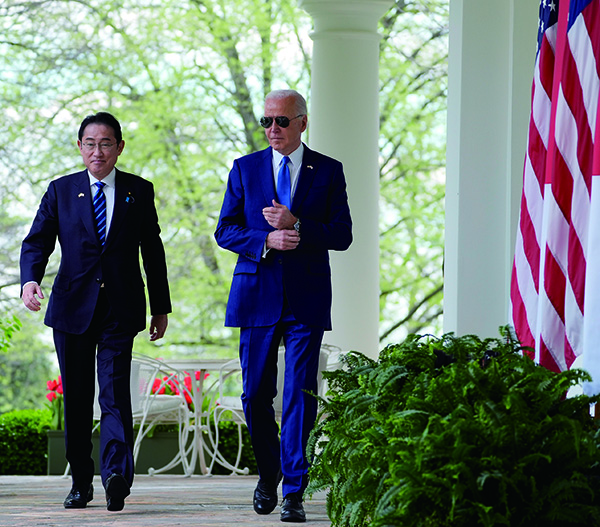
Few of my friends
Andrew Jackson (1767–1845), the seventh president of the United States (1829–37), whose face is on the twenty-dollar bill, was born in the frontier region of western Carolina. His hometown people called him the son of an Indian. It is unclear whether he inherited the soul or blood of an Indian. In 1781, at the end of the Revolutionary War (1775–83), when the British invaded the Carolinas, his mother and brothers were killed by the British. This tragic experience gave him an extreme hatred for the British. Jackson was imprisoned at the age of 14, and even then, he refused to clean the boots of a British officer. For this, he was beaten with a sword and his face was scarred. After the American Revolution, he studied law on his own, moved to Tennessee, a state that was then an undeveloped settlement, and became a successful lawyer at the age of 21. He mainly handled debt collection lawsuits, which helped him build relationships with landowners and creditors. Tennessee became Jackson's political fiefdom for the rest of his life.
Reading Jackson's biography reminds me of Philip Meyer's novel The Son. Of course, the novel is set in Texas a generation later, and the main character is a man who transformed from a ruthless militiaman to an oil tycoon. The main character, Eli McCullough, is the son of a poor frontier settler. He witnesses his mother and sister being raped and murdered by the Comanche tribe in front of him. After that, the young McCullough brothers are taken as slaves to the Comanche. The Comanche accidentally kills Eli's rough and rebellious older brother while threatening him with a spear. According to Comanche tradition, the scalp of a dead enemy must be removed to prevent the soul from resurrecting, but if the enemy is a different species, the scalp cannot be removed. This is because a different species of courage and wisdom is needed for a tribe to survive in a rough and changing environment. Didn't Schumpeter call the different species that sustain capitalism an innovator? The Comanche bury their cherished blankets, bows, and quivers with the bodies to appease the spirits of the other race, and hold a pious funeral. Reading Jackson's biography, you can see that America has been a country full of the spirit of the other race from the beginning. It reminds me of a certain emerging country and its central bank that always talks about the example of the United States, but when it comes to using people, they only use easy-going 'yes men' and ordinary people, and eventually fall into a swamp of stagnation.

Military commander with Supreme Court background
Jackson was elected to the Tennessee Constitutional Convention in 1796, drafting the Tennessee Constitution, and in the same year, at the age of 29, was elected as Tennessee's first federal representative. At that time, the U.S. Senate was not directly elected by the people as it is today, but was like the German Federal Council, directly dispatched by the local states (state legislatures) to the federal parliament and acted as a representative of the local states. Therefore, in the federal parliament, the lower house directly elected by the people enjoyed a superior status than the upper house dispatched by the local states. After completing his term, Jackson returned home and was appointed to the Tennessee Senate at the age of 30. This meant that the two political factions competing for national control, the Federalists (now the Republican Party) and the Republicans (now the Democratic Party), had emerged as leaders that could not be ignored. Jackson resigned from the Senate and returned home, but was elected as a judge of the Tennessee Supreme Court and commander of the Tennessee militia.
In 1812, when the War of 1812 broke out between the United States and Britain, the federal government instructed Jackson to "fight against the Creek Indians who were allied with Britain and threatening the American South." In 1814, Jackson emerged as a hero of the West by annihilating the Creeks at the Battle of Tohopeka (Horseshoe Bend) in Alabama. He was 47 years old. In 1814, Jackson ignored the federal government's instructions and invaded Florida, a Spanish possession. The pretext was that Spain was an ally of Britain. Jackson received intelligence that the main British force was moving to New Orleans, the center of the American South. In January 1815, Jackson inflicted a decisive defeat on the British at the Battle of New Orleans. News of Jackson's victory reached Washington, where morale was at rock bottom due to successive defeats. However, in December 1814, the U.S. government had secretly signed a peace treaty (the Treaty of Ghent) with Britain. Jackson's victory brought joy and relief to Americans, and Jackson emerged as a national hero.
In 1822, the Tennessee legislature formally nominated Jackson for president. In the 1824 presidential election, four candidates ran, Andrew Jackson (99 votes), John Adams (84 votes), William Crawford (41 votes), and Henry Clay (37 votes). Since no candidate received a majority of the vote, a runoff election was held between the top three candidates in the House of Representatives. Adams (second place) lost the Secretary of State position to Clay (fourth place), the Speaker of the House, and was elected president. Jackson's followers were determined to punish Adams for his corrupt dealings with Clay, and they nominated Jackson again for president in the 1828 election. Jackson won the Electoral College vote 178 to 83 over Adams. However, the election was marked by unprecedented personal attacks and slander, which cost Jackson his wife.
Jacksonian Democracy
The election of 1828 is considered a turning point in American political history. Jackson was the first president from the West. Since the initiative for candidacy and leadership of the campaign organization came from the West, the center of political power shifted from the East to the West. Jackson was also the first person to be elected president by appealing directly to the electorate, without the support of an established political organization. During his presidency, six new states were admitted to the Union, and five of them granted universal suffrage to men. The existing states also changed their election laws to expand the electorate, and expectations for democracy rose throughout the continent. The weakening of the power of the established political organization opened the way for a new type of political leader who was skilled at attracting voters. However, slavery still existed at the time, and society, stuck in the negative image of women based on Christian scripture, did not recognize women’s suffrage.
Jackson became the standard by which Americans evaluated presidential candidates. He was a truly "amateur" president, having never held a high position in the central government and had no diplomatic experience. However, Jackson carried out his presidency in the way he had overcome difficulties at every turning point in his life. He dealt with problems decisively whenever they arose, and showed his energy and determination as a military commander. From the beginning of his presidency, he clearly declared that he was the master of the administration. At times, his will was so stubborn that his opponents called him "King Andrew I." When making important political decisions, Jackson relied on an informal group that helped elect him, whom his opponents called Jackson's "kitchen cabinet." Later historians called Jackson's political style, which laid the foundation for the American presidential system today, "Jacksonian democracy."
